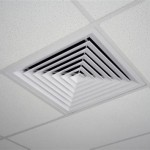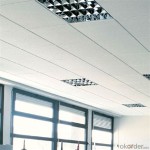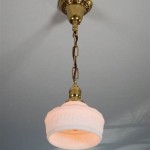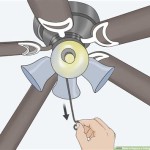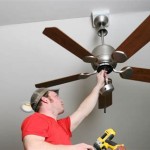Drop Ceiling Vs Suspended Beam Cost Comparison
When it comes to constructing a ceiling, homeowners and builders have a variety of options to choose from. Two popular choices are drop ceilings and suspended beam ceilings. Both offer distinct advantages, but they also come with varying costs. Understanding the cost comparison between drop ceilings and suspended beam ceilings can help you make an informed decision that aligns with your budget and design preferences.
Cost Breakdown of Drop Ceilings
Drop ceilings, also known as suspended ceilings, are constructed using a grid system of metal or wood panels that are hung from the main ceiling. They are typically made of gypsum board or mineral fiber tiles, offering a budget-friendly and versatile solution for various applications. The cost of a drop ceiling depends on several factors, including the size of the room, the type of tiles or panels used, and the complexity of the installation.
Here's a breakdown of the typical cost components of a drop ceiling:
- Materials: The cost of materials, such as the grid system, tiles or panels, and fasteners, can vary widely based on the chosen materials and quality. Expect to pay between $10 and $30 per square foot for materials.
- Labor: Installing a drop ceiling requires professional expertise, and labor costs can account for a significant portion of the overall expense. The labor cost can range from $5 to $15 per square foot, depending on the complexity of the installation.
- Lighting: The cost of lighting fixtures can vary depending on the type and quantity. Consider the size of the room and the desired lighting effect when budgeting for lighting.
Cost Breakdown of Suspended Beam Ceilings
Suspended beam ceilings, often referred to as exposed beam ceilings, are a more aesthetic and robust option. They involve installing exposed beams made of wood or metal that are attached to the main ceiling, creating a visually striking design. These beams can be left in their natural state or painted to complement the overall design. The cost of a suspended beam ceiling is typically higher than a drop ceiling.
Here's a breakdown of the typical cost components of a suspended beam ceiling:
- Materials: The cost of materials for suspended beam ceilings can vary significantly based on the type of wood or metal used, size, and finish. Expect to pay anywhere from $20 to $60 per square foot for materials.
- Labor: Installing suspended beams requires specialized carpentry or structural engineering skills, often involving more complex labor compared to drop ceiling installation. Labor costs can range from $15 to $40 per square foot, depending on the complexity of the installation.
- Finishing: Depending on the desired aesthetic, additional finishing costs might include staining, painting, or adding decorative elements to the exposed beams.
Key Considerations for Cost Comparison
When comparing the cost of drop ceilings and suspended beam ceilings, it's essential to consider several factors that can influence the overall expense:
- Room Size: Larger rooms generally require more materials and labor for both drop ceilings and suspended beam ceilings, resulting in higher costs.
- Material Selection: The type of materials used, such as the grade of wood or metal, can significantly impact the cost. Consider the durability and aesthetic of various options when determining your budget.
- Installation Complexity: The complexity of the installation, such as the need for specialized carpentry or structural engineering, plays a crucial role in labor costs.
- Lighting Integration: The type of lighting system and its integration with the ceiling can add to the overall cost.
- Region and Labor Costs: Labor costs can vary significantly based on location and the availability of skilled professionals.
Ultimately, the choice between a drop ceiling and a suspended beam ceiling depends on individual preferences, budget constraints, and the specific needs of the project. By carefully evaluating the costs and considerations outlined above, homeowners and builders can make an informed decision that balances aesthetics, functionality, and budget.

Suspended Ceiling Vs Drop A Comparative Ysis For Cost And The Maintenance Issue Ceilings Brisbane

This Vs That Exposed Ceiling Or Acoustical Dbs Group Llc

How Much Cash Will You Drop On A Ceiling Homeserve Usa

Drop Ceiling Or Drywall Which One Should You Choose

How Much Does A Drop Ceiling Cost 2024 Data Angi
What Is The Cost Comparison Of Drop Ceiling And Drywall Quora
What Is The Cost Comparison Of Drop Ceiling And Drywall Quora
How To Install Drop Ceilings Easy Guide Kanopi By Armstrong

Diffe Types Of Ceilings Armstrong Residential

Drop Ceiling Installation Ceilings Armstrong Residential
Related Posts

